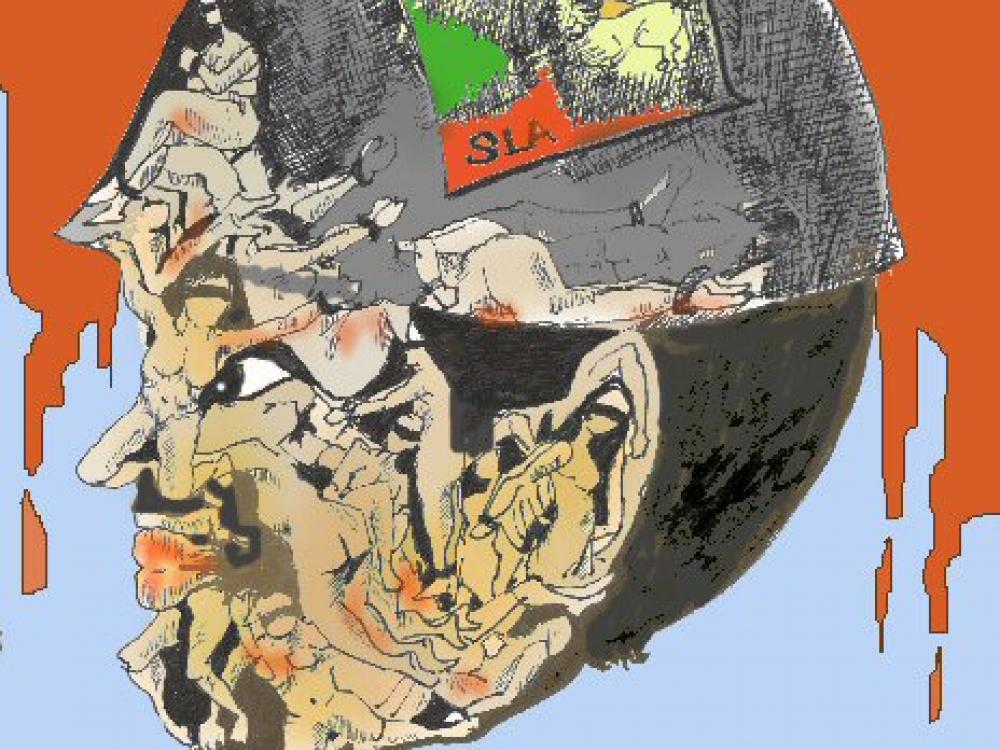‘Tamil Guardian’ editorial, London, April 24, 2018
A stinging new report from the International Truth and Justice Project (ITJP) has underscored the urgent need to clamp down on impunity in Sri Lanka. There is now abundant evidence that troops from the Special Task Force (STF), a foreign trained paramilitary unit, have committed atrocities, complete with testimonies from individuals involved in the crimes. Yet Sri Lanka has taken no action to ensure the perpetrators are brought to justice – a failure that has appallingly led to an officer involved in these crimes to currently be deployed with the United Nations.
The report adds to an extensive collection that documents the brutality of Sri Lankan state violence. The details do not make for easy reading. Villagers were made to walk in to minefields, Sri Lankan sting teams practised abductions and executed bodies were burnt whilst officers drank arrack. The merciless violence deployed confirms once more what Tamils have been saying for decades, including what asylum seekers fleeing the island continue to testify to this day. Impunity on the island has allowed an alarming level of human rights violations to take place unabated.
The history of the Special Task Force in particular, is notorious. The fact that the UK trained these troops, and continues to do so, is indefensible. All such programs must be suspended. There is nothing gained in being associated with soldiers accused of such heinous crimes and who remain unpunished. However, Britain’s unwillingness to send a strong message to Colombo on its dismal lack of action on human rights, and instead allowing the controversial minister Liam Fox to meet with Sri Lanka’s president in London last week, only embeds its complicity further. By gifting Sri Lanka the international legitimacy and diplomatic recognition it craves, the UK is worsening its tainted legacy on the island.
Given the crimes Sri Lankan troops are accused of committing against Tamils and the fact that they were involved in the rape of children in Haiti whilst serving as peacekeepers, it is harrowing to learn that those responsible have been considered for missions with the UN without being subjected to a thorough screening process. The ITJP even identified an officer involved in executing Tamils, who is currently serving in Africa. Selecting those accused of personally directing such grotesque violence for the UN’s own missions completely undermines any faith that victims on the island – and across the world – are supposed to have in the global body.
Indeed, the continued deployment of unvetted Sri Lankan troops is emblematic of the international community’s approach to Sri Lanka. With less than a year to go to for Colombo to set up an accountability mechanism with foreign judges and meet its own already extended deadline at the Human Rights Council, the head of the Sri Lankan state has made it abundantly clear that this will not happen. Defiantly, the state has even sent those accused of torture as part of its delegation to the UN. Yet, despite this brazenness, the Council is despairingly powerless, unable even to get the government to respond to requests for information. Other member states have meanwhile chosen to warm their relations with Sri Lanka, seemingly rewarding “progress” and signalling that the lack of action on key issues is entirely inconsequential.
The ITJP report should be used as an opportunity to prove otherwise. Sri Lankan soldiers themselves have come forward to identify officers responsible for crimes and give detailed documentation. A list of names has been passed over to the global bodies responsible for peacekeeping. The first step would be to swiftly acknowledge their errors, identify all those involved, and begin criminal proceedings. If the UN system continues to fail its victims, then member states must take matters into their own hands and exercise universal jurisdiction to immediately begin prosecutions against suspected war criminals, some of whom have been given postings in capitals around the world.
As the ITJP details, Sri Lankan troops are audaciously instructed to “really ignore” talks on human rights and “not to take notice of the International Committee of the Red Cross (ICRC) input”.The soft handed international approach to this government has proven utterly futile. For years Tamils have been told to place their faith in the international system. But it continues to fail them. Having war criminals roam free across the heavily militarised North-East, and serve as part of the global body’s peacekeeping missions, belies all rhetoric on reconciliation and accountability. Instead it ensures that rights violations will continue and the island is kept in a constant state of crisis, as exhibited just last month. It is no coincidence that STF troops were amongst those assaulting Muslims during Sinhala mob violence in Kandy. Unless stern action is taken and impunity addressed, the abuses will carry on.
